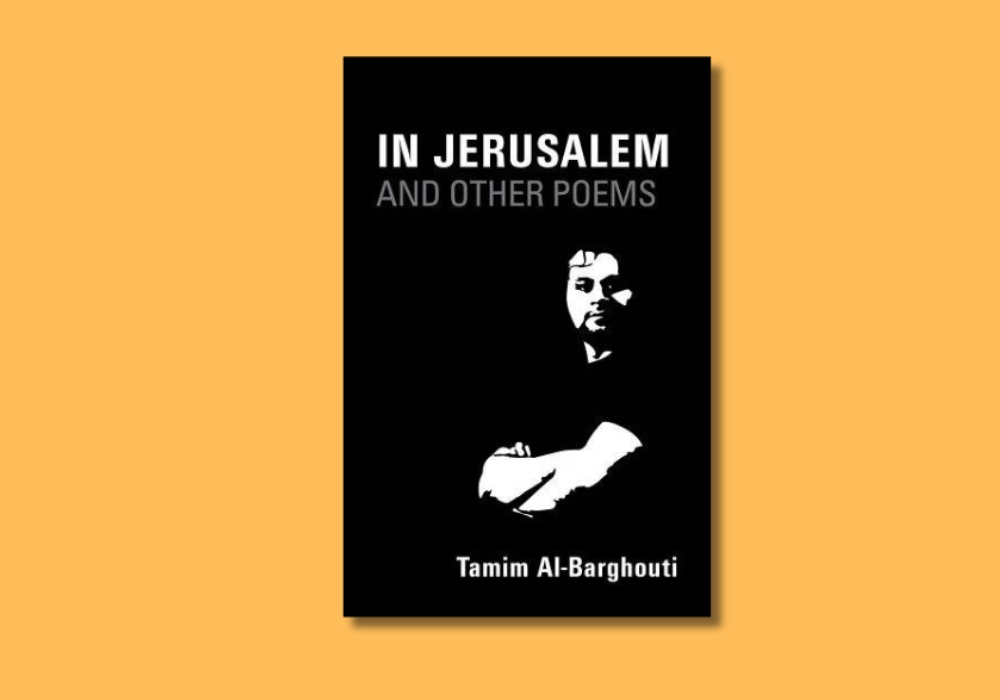In August 1982, poet Mahmoud Darwish was besieged in Beirut, like thousands of his fellow exiled Palestinians, and facing increasingly violent Israeli bombardment of the city where he had made a home in exile. The shelling was relentless, from the air and from the sea, and eventually a land invasion followed. Water and electricity were cut off. The city was starving and almost no place was safe. In Memory for Forgetfulness, his incandescent diary of a day during this siege, Darwish writes (in Ibrahim Muhawi’s translation): “We pay attention to literature’s weaponry, which is powerful enough to hide treason under the cover of ‘disgust with politics’—that is, with having to struggle—and also to claim sanctity and joy in dreaming.”
Writing about Palestine in English, and particularly for American publications, has been unnecessarily fraught for decades. I say unnecessarily, because like all other colonized people in history, we Palestinians have simply been resisting our Zionist colonizers, and our literature reflects that long national struggle. The trouble lies in the unexamined bias that English-language readers (and editors) have been steeped in most of their lives. For as long as Palestinians have resisted their occupiers, a companion narrative questioning our very existence, a profoundly dehumanizing narrative rooted in the West’s still unexamined anti-Arab racism, has also thrived. Each decade has its own villains, its ahistorical screeds, and the attendant massacres against us in our cities and our refugee camps that are justified, then excused, then simply forgotten. The bias thrives in silence, and in fragmentation. But the scale of horrors that began with Israel’s assault on Gaza this October has subsumed any of the previous wars and ethnic cleansing campaigns we have endured in the past. The numbers defy comprehension: as of this writing, 25,201 Palestinian civilians killed by Israel, nearly 12,000 of them children. Sixty-three thousand people gravely injured, with most of the hospitals in the Gaza Strip bombed and ruined. This is also the longest war—in its fourth month now with no end in sight, during which 1.9 million Gazans have been displaced and all of them subjected to starvation. Experts are now describing the Israeli campaign in Gaza as one of the most destructive in history, with the Associated Press reporting that the offensive has wreaked more destruction than the 2012 to 2016 razing of Syria’s Aleppo, Ukraine’s Mariupol, or the Allied bombing of Germany in World War II. Now, we write in a silence that has more than 25,000 cracks in it, an urgent shattering that may have arrived too late.
Among the casualties of this genocide, as it has been described by international and Israeli experts on the subject, are some of our brightest storytellers: writers, artists, teachers, journalists, and poets. On October 20, award-winning novelist and poet Hiba Abu Nada was killed by an Israeli airstrike on her home in Khan Younis. I spoke by phone with Hiba’s translator, Huda Fakhreddine, who told me Hiba’s sister was determined to get her writing out into the world. I am haunted by a phrase in our conversation: “they are trying to recover her laptop from beneath the rubble.” Every part of Palestinian life—our words, our work, our cities, our bodies, beneath the rubble.
On December 7, Israel killed beloved English professor, writer, and editor Refaat Al-Areer, along with his sister and her children. One report suggests Refaat had relocated from his own home, after receiving a call from the Israeli military, for fear that his presence would endanger the lives of everyone else in the home. Refaat’s students and friends shared a poem on X (formerly Twitter) that he had written a few weeks earlier, a prescient self-eulogy. And then, like the kite it describes, the poem took flight, and readers from all over the world began to offer their translations of it on social media. Within days, Refaat’s poem had been translated into over one hundred languages, often with the preface: “this is a translation to the best of my ability…” A crowd-sourced popular anthology was born, and the poem that appeared on homemade kites at protests around the world was brought home to many more readers.
In Anthology of Modern Palestinian Literature, translator and anthologist Salma Khadra Al-Jayussi writes: “Whether in Israel, or in the West Bank, and the Gaza Strip, or in the diaspora, Palestinians are committed by their very identity to a life determined by events and circumstances arising out of their own rejection of captivity and national loss, as well as by other people’s intentions, suspicions, fears and aggressions.” The body of Palestinian literature spans decades and continents. Palestinians inside Palestine and across the diaspora in North America, Latin America, Europe, Asia, and Australia write from the originating wound of losing a homeland, but they do so in a variety of genres, across many languages, and within many cultures. My hope, as curator of this series, is to introduce English-language readers to the scope and breadth of this thriving literature, with its range of voices who each maintain their distinctly Palestinian struggle, and always claim the sanctity and joy of the dream.
This first edition of WWB’s “Against Silence” series includes two poems by the late Hiba Abu Nada, elegantly translated by Huda Fakhreddine, and a moving tribute to Refaat Al-Areer by Nadya Siyam, one of his students, currently a teaching assistant at the American University of Cairo. It is in this moment of immense multiplying loss and of incurable, relentless hope that I invite you, reader, to break the siege on your own understanding of Palestine, by offering the work of Palestinians from all over the world, against fragmentation, against silence.
© 2024 by Lena Khalaf Tuffaha. All rights reserved.












